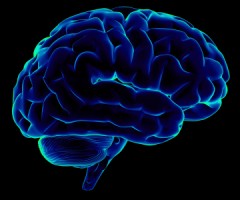When you ask most people about strengthening their brain many people believe what they are born with it what they have for the rest of their life.
Until recently, a popular misconception was that neurons die through life and do not get replenished. However, new research shows that the brain is more like a muscle-it changes and gets stronger when you use it. We now know that our brains enjoy lifelong brain plasticity or neuroplasticity.
Neuroplasticity is the brain’s ability to reorganize itself by forming new neural connections throughout life. Inside the brain, there are billions of tiny nerve cells, which are called neurons. The nerve cells connect to other cells in a complicated network. These brain cells communicate, which helps people think and solve problems. When you learn new things, these tiny connections in the brain actually multiply and get stronger. The more that you challenge your mind to learn, the more your brain cells grow. The result is a stronger. This means that exercising our brains is as important as exercising our bodies. Investigations of neuroplasticity demonstrate that the adult brain can continue to form novel neural connections and grow new neurons in response to learning or training even into old age.
Neuroplasticity allows the neurons (nerve cells) in the brain to compensate for injury and disease and to adjust their activities in response to new situations or to changes in their environment. In order to maximize the potential for neuroplasticity brain exercises need to challenge different functional systems. Engaging neuroplasticity in adulthood requires intensive, repetitive brain exercise. Many people have been inspired to do crossword puzzles and other activities to stay sharp. Studies have shown that learning to perform new and challenging activities can engage the brain’s natural plasticity to make positive changes.
Things you can do include:
- Take classes to learn something you’ve always wanted to understand.
- Learn to play a card game,
- Study another language like Spanish
- Take a seminar on video editing, model building, etc.
- Do games and puzzles such as crossword puzzles, Sudoku and Scrabble.
- Read
- Read lot of different types of books.
- Take a magazine and dedicate specific time to it.
- Read the newspaper.
- Set your computer homepage to bring up news items of particular interest to you and read them each time you open the computer.
- Remember and repeat groups of words
- Memorize your grocery list.
- Test and monitor your memory and attention with special computer games.
- Play computer brain games.
- Brain Challenge – Xbox
- Brain Age – Nintendo DS.
- Echochrome – Playstation
- Meditate.
- Take calm, deep breaths. Your brain (and entire body) needs lots of fresh air.
- Eat foods containing omega fatty acids (known to boost intellectual stamina) such as flax, and fish.
- Perform math functions regularly.
- Learn new words from a word a day calendar or dictionary.
10. Use your left hand if you are right handed, and reverse, to exercise the opposite side of the brain.
- Try writing your name with your non-dominant hand
- Put your mouse pad on the other side of the keyboard.
- Try using eating utensils with your non dominant hand
11. Learn to read and play music (classical music is known to have the best effects.)
12. Draw or paint.
13. Try commuting with varied routes, to prevent the brain from becoming monotonous.
14. Avoid watching TV for hours.
15. Never avoid breakfast, it’s essential for your brain to function efficiently.







You may be interested in the Feldenkrais Method.®. It is a method to heighten learning conditions and uses movement puzzles as a direct application. go to http://www.feldenkrais.com for more info. Thanks for the blog!
Thank you for this article Steve and highlighting the wonderful new work that has revealed how incredible our brains are, and the non-deterministic approach! This is also an empowering article, because I think many people believe they have little power over how their brain functions.